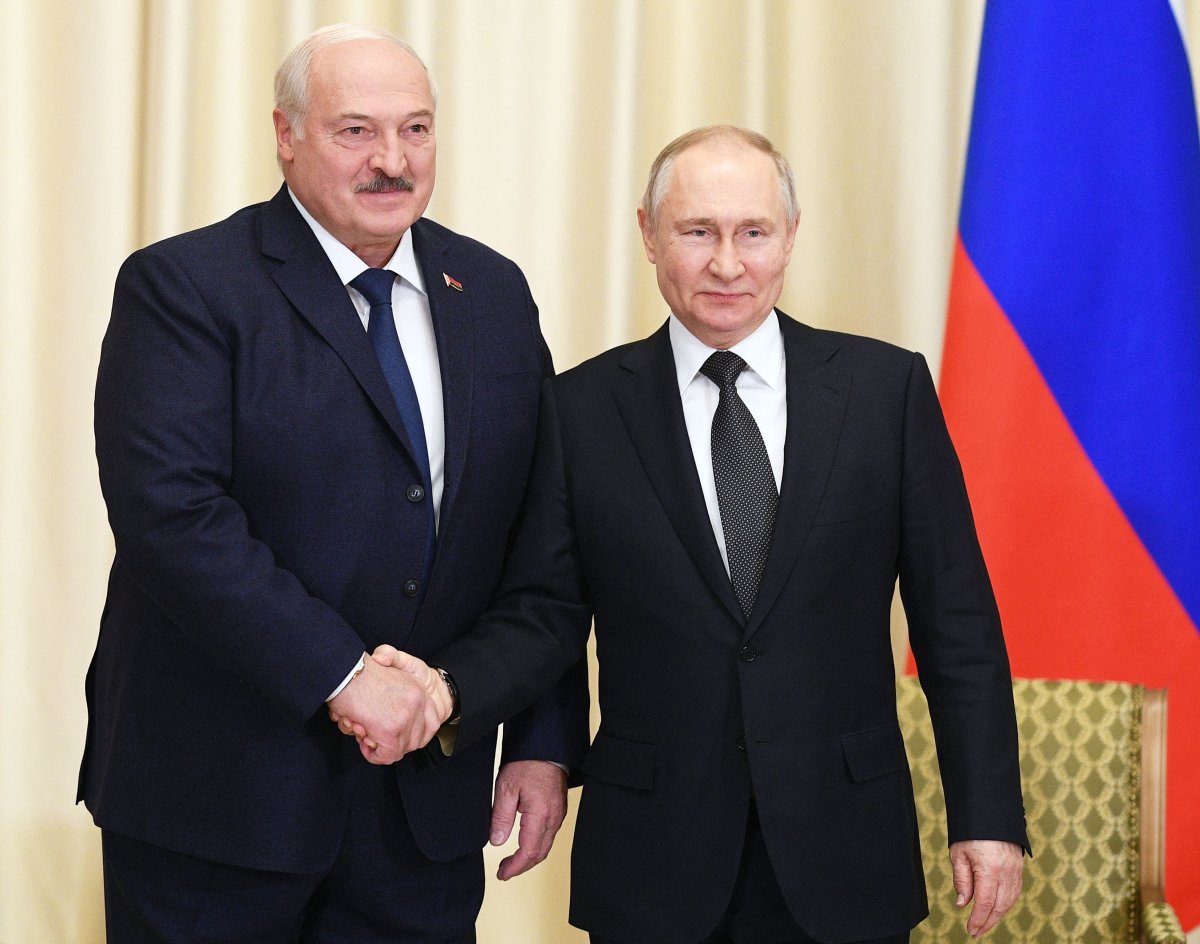A high-ranking Russian official is warning that Belarusians who are fighting on Ukraine's side against Russia might attempt to overthrow their own government.
Russian Deputy Foreign Minister Mikhail Galuzin told Georgian TV network RTIV that the rhetoric of "Belarusian nationalist formations" fighting as part of the Armed Forces of Ukraine in the Donbas region "has become significantly tougher."
"The leaders and commanders of these cutthroat mercenaries openly say that in the future they plan to use their combat experience to forcefully overthrow the current Belarusian leadership," Galuzin said. "In this regard, one cannot rule out the possible transfer of such sabotage groups to the [Belarusian] Republic."
He implored Belarusian law enforcement agencies and special services, supported by the Regional Grouping of Forces (RGV), to take such risks into account and "repulse 'pinpoint' provocations and the enemy's full-scale invasion of the territory of Belarus" if necessary.

"Of course, as has happened more than once in our common history, the Russians will stand shoulder to shoulder with their brothers to protect the sovereignty and security of the Union State," he said, in reference to the deepened relationship between the countries based on economic and defense policies.
Ukraine's General Staff reported in August that about 13,000 Belarusians signed some form of agreement to join Russia's full-scale war against Ukraine, according to the Kyiv Independent.
Artyom Shraibman, a Belarusian political analyst and founder of Sense Analytics consultancy, told Newsweek via Telegram that Galuzin hardly departs from Putin's line of thinking.
It continues to put Alexander Lukashenko, the president of Belarus and a close ally of Russian President Vladimir Putin, in the spotlight. Shraibman said it's difficult to say whether Lukashenko could do more with the hand he's played the past year.
"He's given up a lot of military autonomy, but he got plenty of economic carrots in response," he said. "I am pretty sure he regards it as success. Also, I am not sure he had things to push against, as there [is] zero evidence Putin asked for anything more than Lukashenko has given to him.
"So, he is turning the country into a full-fledged satellite of Russia, but this comes with more security for him personally because his regime's relations with Russia blossom."
Galuzin's warning comes the same week that Putin announced Moscow will build storage facilities for tactical nuclear weapons in Belarus and train Belarusian pilots to deliver the warheads from their own Su-24 aircraft.
Lukashenko followed by threatening the United Kingdom for its plan to provide Ukraine with ammunition containing depleted uranium. He said if the U.K. sends the ammunition, Russia will give Belarus ammunition with "real uranium."
Retired U.S. Army General Ben Hodges told Newsweek that Lukashenko could be "powerless" when it comes to storing Russia's nuclear weapons, however.
"I think that this entire development is an information operation by the Kremlin, to remind us all that Russia has nuclear weapons because they know that so many in the West have a visceral overreaction each time this comes up," Hodges said. "It causes us to stop, hesitate, before doing what we need to do to ensure Ukraine wins."
Shraibman said that Lukashenko ultimately has his own political interests at heart.
"It was always poisonous for the country's prospects, but now it became all too evident," he said.
Belarusian propagandist Ryhor Azaronak said on national television that his country is now a "nuclear state," as he threatened to attack neighboring Poland and Lithuania.
Belarusian pro-democratic leader Sviatlana Tsikhanouskaya said Putin's announcement "grossly contradicted" the will of the Belarusian people.
"It will increase the disobedience [and] discontent within Belarusian society, including partisan activities," Franak Viačorka, Tsikhanouskaya's chief political adviser, told Newsweek on Tuesday. "Before, when the Russian trains with equipment were massively arriving in Belarus, the massive resistance started. The more equipment, more troops, more Russian activities in Belarus territory, the more active people will be. It will be the same with nuclear weapons."
Last month, Russia suspended its participation in the New START Treaty with the United States, an agreement that stipulates that neither nation is allowed to deploy more than 1,550 strategic nuclear warheads.
Uncommon Knowledge
Newsweek is committed to challenging conventional wisdom and finding connections in the search for common ground.
Newsweek is committed to challenging conventional wisdom and finding connections in the search for common ground.
About the writer
Nick Mordowanec is a Newsweek reporter based in Michigan. His focus is reporting on Ukraine and Russia, along with social ... Read more
To read how Newsweek uses AI as a newsroom tool, Click here.








